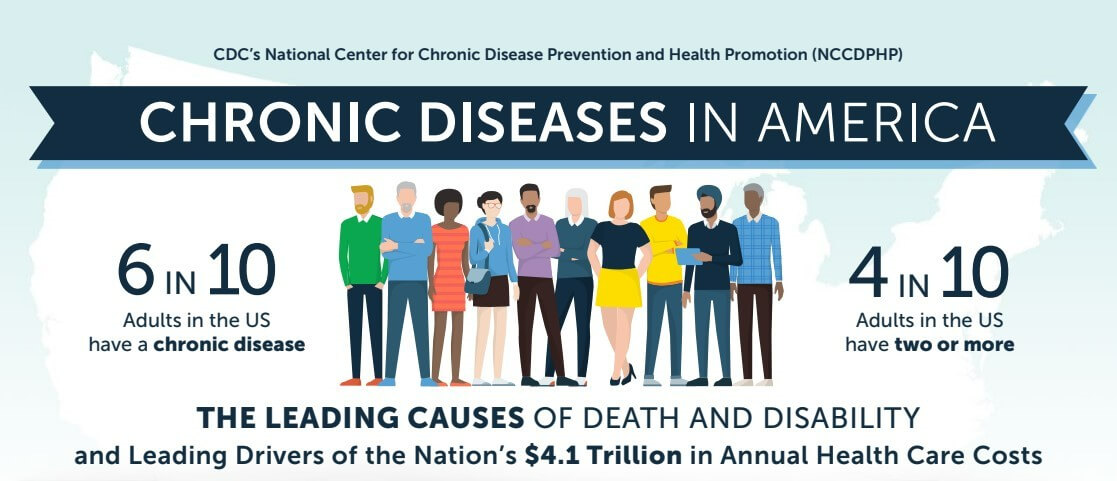Myths About Medications
With so many available resources online now, misconceptions about medications are becoming more and more common. But taking medication can be an important part of your overall health, and having the correct information is extremely important to keep you safe and healthy. Here are some of the top myths about medications, and the facts that debunk these myths:
Myth: You feel better, so you don’t need to take your medication.
Fact: Your doctor prescribed you medication because you need it. If you stop taking your medication early, it can increase your chance of relapsing into the illness that medication is prescribed for. Especially with antibiotics, it’s tempting to stop taking them as soon as you feel better. But you need to take the full treatment to kill the disease-causing bacteria. If you stop taking it, it can also promote the spread of the antibiotic-resistant properties among harmful bacteria.1
If you are taking a maintenance medication, it’s very important you talk to your doctor or pharmacist before you change your medication regimen.
Myth: Natural supplements are always a safe choice.
Fact: “Natural” doesn’t always mean “safe.” Since the standards for supplements are not as strict, the amount of each ingredient can vary between products. If you’re interested in natural supplements, it’s important you still talk to your doctor or pharmacist about which ones are safe for you to use. Your pharmacist will be able to look at all your medications and be able to recommend which supplements will best fit into your regimen.2
Myth: If you’re really hurting, you can ignore the recommended dosage and take more pills.
Fact: If you take more than the recommended dosage on the label, it can hurt you. Pharmaceutical companies and doctors work hard to develop the appropriate dose for every person. Taking your pills in any other way than the recommended amount can do more harm than good.
Taking more pills or more frequently than the label states can rob you of the medicine’s benefits and increase the risk of serious side effects. Also, it is very possible that an overdose can occur which can have dangerous or even life-threatening consequences. It’s important to read every label or talk to your pharmacist to be clear on your recommended dosage.2
Myth: Antibiotics are always the answer.
Fact: Antibiotics can only treat bacterial infections such as strep throat, not infections caused by viruses such as acute respiratory infections. Taking antibiotics unnecessarily can cause antibiotics to lose its strength and ability to effectively treat bacterial infections going forward.3
Myth: Your healthcare providers don’t need to know what vitamins you take.
Fact: Health care professionals should know every medication, prescribed or OTC, you take regularly so that they can warn you about potential interactions.
Examples of vitamins with the potential for serious interactions include vitamins A and E, which increase the effects of anticoagulation and should therefore be closely monitored when taking warfarin, and magnesium, which can decrease antibiotic absorption and should be dosed separately by 2 hours before or 6 hours after taking an antibiotic.3
Myth: It doesn’t matter how you ingest the pill.
Fact: Taking pills with any other liquid than water – particularly alcohol – can interfere with the manner in which the body absorbs the medication. Also, some medications must be taken with food, which others may have strange or dangerous interactions with certain foods.3 Talk with your pharmacist on drug administration instructions for proper absorption.
Myth: It doesn’t matter where you store your medications.
Fact: Some medications lose their effectiveness when they are exposed to hot, humid environments. Medications are almost always best stored in a dry place away from heat, direct light, or any source of dampness. If children are around, keep medicine containers out of reach. Some medicines have bright colors and shapes that children can mistake as candy.
Managing medications can be complicated, especially if you are taking several. It’s important to understand your regimen, talk thoroughly with your pharmacist, keep up to date on refills, and take medications as prescribed. If you are unsure about any of the medications you are currently taking or plan on taking, it’s always a good idea to talk to your provider or pharmacist about it first. With proper administration and storage, your medication regimen should help you feel your very best!
Sources
- https://www.mayoclinic.org/healthy-lifestyle/consumer-health/in-depth/antibiotics/art-20045720#:~:text=Taking%20antibiotics%20responsibly,to%20start%20treatment%20again%20later.
- https://health.clevelandclinic.org/7-myths-medication-facts-behind/
- https://www.pharmacytimes.com/view/7-medication-myths-pharmacists-can-debunk
Top 7 Chronic Diseases in America

What is Chronic Disease?
-
Tobacco use & exposure to secondhand smoke (2): Using tobacco or being exposed to secondhand smoke increases your risk of poor health and chronic disease.
-
Poor nutrition: Having a well-rounded diet and drinking plenty of water is key to keeping yourself healthy.
-
Lack of physical activity: Staying active is important in maintaining a healthy lifestyle.
-
Excessive alcohol use: This includes binge-drinking, heavy drinking, and using alcohol while pregnant.
Most Common Chronic Diseases
Heart Disease
Cancer
Chronic Lung Disease
Stroke
Alzheimer’s Disease
Diabetes
Chronic Kidney Disease
Prevention & Control
-
Managing your blood pressure. A major risk factor for heart disease, stroke, and other chronic conditions is having high blood pressure. Understanding what high blood pressure is, what it looks like, and how it can affect your body and heart will help you stay healthier and prevent you from a possible heart attack or stroke. Ask us how we can assist you with our free blood pressure monitoring.
-
Controlling your cholesterol. Having high cholesterol increases your risk for cardiovascular disease. Talk with one of our pharmacists about what high cholesterol is and what your cholesterol levels mean. We can give you tips on how to improve your levels.
-
Reducing blood glucose levels. High levels of blood glucose can lead to diabetes. Gaining a better understanding of what raises your glucose levels, such as what foods you should or should not eat, can help manage your sugar intake. Watching what you eat is an important step towards eating healthier and living a healthy lifestyle.
-
Getting active. About 80 percent of adults and adolescents in the United States do not get as much physical activity as they should. While it may be hard for some to incorporate physical activity into their daily lives, it is important to get at least 150 minutes per week. (5) Being physically active, even if it’s taking a short walk or doing yoga, can significantly improve your quality of life. Staying active can help with heart health, improve thinking skills, control weight, and boost energy levels. (6)
-
Eating healthier. Maintaining a healthy diet is one of the best ways to prevent and manage chronic disease. Making simple changes to your diet, such as consuming less sodium and sugar, can help prevent high blood pressure and lower your glucose levels.
-
Losing weight. Having a high body mass index can lead to increased risk of chronic disease. Taking steps to lose weight through diet and exercise can make a huge difference in your overall health, even if it is only a 5 percent weight loss.
-
Stop smoking. Smoking cigarettes rapidly increases your chances of developing cardiovascular disease, which may lead to other chronic diseases. Many individuals turn to electronic cigarettes or vapes, but these often contain harmful chemicals.
- « Previous Page
- 1
- …
- 8
- 9
- 10
- 11
- 12
- …
- 62
- Next Page »
